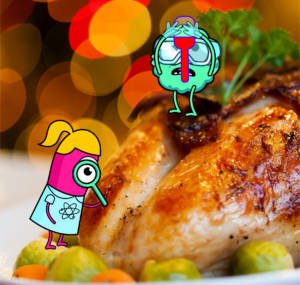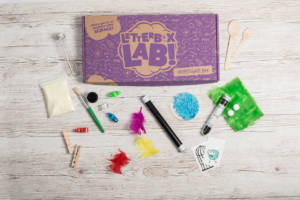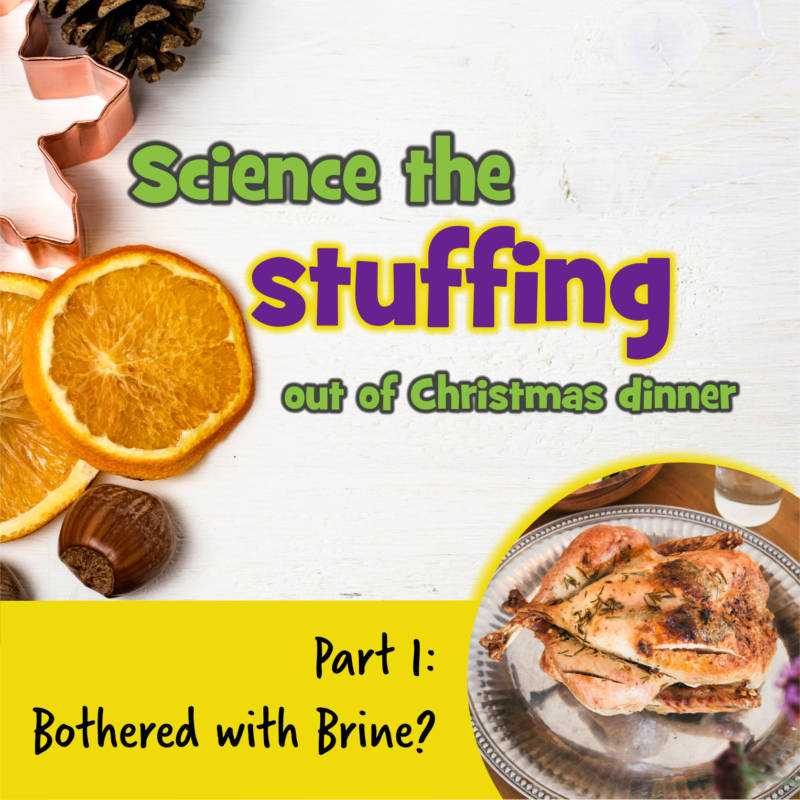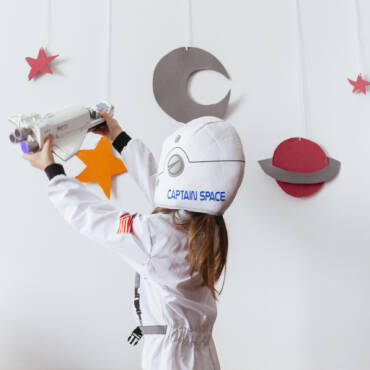In the first of our festive series of blog posts, Science the Stuffing out of Christmas Dinner, we find out how science can give us a tastier Christmas bird with minimal hassle.
A lot of chefs talk about the importance of brining meat, especially lean meats like turkey, to make them more juicy. To brine meat, you simply put it into a container with around 5% salt water (that’s 50g salt to every litre of water) and refrigerate for a couple of days. If you have a container big enough to fit a turkey, several litres of water, and a lot of space in your fridge, you might be tempted to have a go at brining this Christmas.
Before you reach for that bucket though, let’s put brining under a microscope and see if we can science up an easier, and perhaps better, alternative. Meat is made of muscle, which is made of protein. The salt in the brine changes the structure of the proteins, turning them into a kind of mesh with little pockets in them that makes the meat better at absorbing and holding on to liquid. All this extra liquid gives you a moister Christmas dinner.
However, in a wet brine the liquid that goes into those little protein pockets is the liquid from your brine, which is mostly tap water. Although brined meat is indeed juicier, it’s also known for being less tasty and often lacking crispy skin. What you really want to do is fill those little protein pockets with tasty turkey juices, not tap water. Usually when meat cooks the proteins contract and squeeze out a lot of the meat juices. Another good effect brining has is to stop the meat proteins from contracting keeping in those turkey juices. How can we make good use of this second effect without absorbing a lot of tap water?

Should we bother to brine? Let’s ask science!
The solution is to not use a solution. Haha, did you see what I did there? What I mean is, the science says dry salting your turkey is a better option. Salt on the surface of a turkey will still get absorbed by the meat and make the desired changes to the proteins but without watering it down. Then when your turkey cooks, those little protein pockets which are not full of tap water will fill up with tasty turkey juices. You will have delicious, juicy meat without having to find room for a 40 litre bucket in your fridge.
To salt a turkey, pat it dry with kitchen roll and apply about 4 or 5 tablespoons of salt evenly over the bird. Then leave it in the fridge for 12 to 24 hours before cooking. If you want to salt it for even longer, that can make it better, but wrap it in cling film after salting to prevent moisture loss.
Proteins are polymers, which are long, chain-like molecules. The behaviour of polymers is a recurring feature of Letterbox Lab’s science kits. We look at slimey polymers, water absorbing polymers, jelly worm polymers and more throughout the series.

Polymers feature heavily in the Investigate Box series, so next year your child could be well primed to discuss the brining issue for themselves.
Science the Stuffing out of Christmas Dinner!
Congratulations, science has brought you one step closer to a tastier Christmas dinner. Up next on the menu: To Stuff or Not to Stuff? Read it here, or join our mailing list to receive the whole series in time for Christmas Dinner preparations.




Add Comment